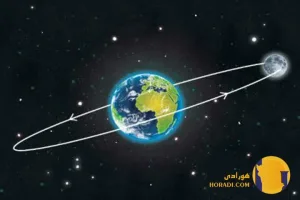
Is Time Travel Scientifically Possible?
Time travel has been one of the most fascinating topics in science, literature, and pop culture for over a century. From H.G. Wells’ The Time Machine to blockbuster movies like Interstellar and Avengers Endgame, the concept has captivated human imagination.
But beyond the fictional portrayals, is time travel something that could actually happen according to science? In 2025, our understanding of physics, cosmology, and quantum mechanics has advanced, but the question still sparks debates among scientists.
In this article, we will explore the theoretical foundations, the current scientific understanding, real experiments, and the potential limitations and paradoxes that might prevent time travel from becoming a reality.Is Time Travel Scientifically Possible?
The Concept of Time Travel in Physics
Time travel refers to moving between different points in time—either to the past or the future—similar to how we move through space. While time travel into the future is scientifically possible (and even happens naturally), traveling to the past remains far more controversial and may be impossible according to current physical laws.
The theory of relativity, proposed by Albert Einstein in the early 20th century, redefined our understanding of space and time. Instead of being separate, space and time are part of a single continuum known as spacetime. This discovery opened the door to theoretical possibilities for bending, stretching, and even looping time.
Time Dilation – Traveling to the Future is Real
According to Einstein’s special relativity, time is not constant—it changes depending on speed and gravity. If you travel close to the speed of light, time for you will pass more slowly compared to someone at rest. This is called time dilation, and it has been proven with precise atomic clock experiments.
For example, astronauts on the International Space Station experience time a tiny bit slower than people on Earth due to both speed and weaker gravity. Over months or years, the difference is only milliseconds, but the principle is real. In theory, if a spacecraft could travel near light speed, its crew could jump forward years or centuries into the future.
General Relativity and Gravitational Time Warping
Einstein’s general relativity adds another twist gravity can warp time. Near extremely massive objects, such as black holes, time passes more slowly compared to regions far from the mass. This phenomenon was famously depicted in Interstellar, where characters visiting a planet near a black hole aged far less than those away from it.
The equations of general relativity allow for extreme gravitational time dilation, meaning future travel via gravity wells could be possible—although the technological challenges are immense.
Wormholes – Shortcuts Through Spacetime
One of the most popular theoretical ideas for time travel is the wormhole, a tunnel-like connection between two points in spacetime. If one end of a wormhole experienced time dilation (for example, by traveling at near-light speed or being near a black hole), the ends could become “out of sync” in time. Traveling through it might allow a person to move into the past or the future.
However, wormholes remain purely theoretical. They require exotic matter with negative energy to stay open, something we have never observed in nature. Even if such matter exists, stabilizing a wormhole would be a colossal engineering feat.
The Problem with Past Travel – Causality Paradoxes
While traveling to the future is supported by physics, going back to the past introduces severe logical and physical problems. The most famous is the grandfather paradox if you go back in time and prevent your grandfather from meeting your grandmother, you would never be born, meaning you couldn’t travel back to do it in the first place.
Some physicists propose solutions like the Novikov self-consistency principle, which states that events in the past are fixed and any time traveler’s actions were always part of history. Others suggest parallel universes—where changing the past simply creates a new timeline, leaving the original intact.
Quantum Mechanics and Time Travel Possibilities
Quantum physics introduces new possibilities. Subatomic particles sometimes display behavior that suggests influences from both past and future states. Certain interpretations of quantum mechanics, such as the many-worlds interpretation, suggest time travel might be possible if traveling to another branch of reality rather than our own past.
Quantum entanglement also raises intriguing questions. While it does not allow sending information faster than light or to the past, it challenges our traditional concepts of cause and effect.
Real Experiments Related to Time Travel Concepts
Although we have never built a time machine, several experiments test the principles behind time travel
- Hafele–Keating Experiment (1971) – Atomic clocks flown on airplanes showed measurable time differences compared to those on the ground, confirming time dilation.
- Muon decay studies – Muons traveling near light speed in particle accelerators live longer than stationary muons, a form of traveling into the future.
- Simulations of wormhole mathematics – Physicists have modeled possible wormhole structures using equations from general relativity, although no physical wormhole has been found.
Could Black Holes Be Natural Time Machines?
Some theories suggest rotating black holes, or Kerr black holes, might allow passage through spacetime in unusual ways. The math shows that certain paths inside could loop back in time. However, the extreme gravity and radiation near black holes would almost certainly destroy any traveler before they could benefit from the effect.
Time Travel in Popular Culture vs. Science
Science fiction often portrays time travel with far more flexibility than real physics allows. In movies, characters can jump centuries in either direction instantly, while in reality, even traveling decades into the future would require speeds and energies far beyond our current technology.
Still, these fictional works inspire scientific thinking, just as Star Trek inspired the idea of flip phones and space exploration.
The Energy Problem – Why Building a Time Machine is So Hard
Even if time travel equations work in theory, the energy required is astronomical. To move a spacecraft near the speed of light, we would need more energy than humanity currently produces in centuries. For wormholes, exotic matter would need to be produced and stabilized in quantities never imagined.
Could Time Travel Ever Happen?
The consensus among physicists is that time travel to the future is not only possible but already happens on small scales. Traveling to the past is far less likely, as it would require conditions and physics that may not exist.
Still, the field of theoretical physics is constantly evolving. New discoveries about quantum gravity, dark matter, or the fabric of spacetime might change what is possible.
Is Time Travel Scientifically Possible? A Dream Worth Chasing
Time travel remains one of humanity’s most alluring dreams. While we can’t step into a time machine like in the movies, science continues to chip away at the mysteries of time. With advances in quantum physics, space exploration, and technology, perhaps one day we will find a loophole in the universe’s laws that allows us to move freely through time.
If that day comes, it will change not just science—but the very meaning of history, memory, and human existence.









































